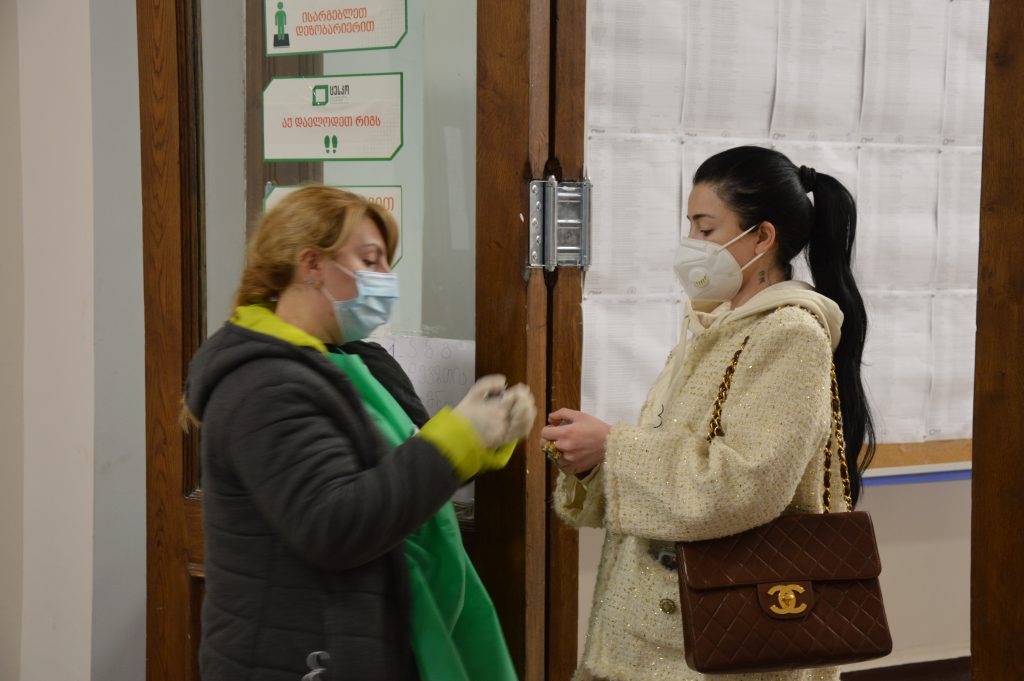National Democratic Institute (NDI), a U.S-funded non-profit, released on December 14, its final report on the observation of Georgia’s October local polls, saying deep flaws in the electoral environment adversely affected the process, “resulting in a missed opportunity to reduce polarization and increase confidence in the broader political process.”
Campaign Environment, Finance
While the NDI observers noted improvements in electoral transparency, they, however, underlined that the process was “marred by widespread allegations of misuse of administrative resources, vote-buying, and pressure and intimidation of voters, candidates, and journalists.”
They highlighted that state security services “were notably accused of pressuring candidates, supporters or voters, raising concerns about the freedom of Georgians to run for office and choose their representatives without fear of retribution.”
“Allegations of harassment and intimidation of opposition party members and candidates were also pervasive,” they said. The experts remarked that over 600 proportional and 100 majoritarian candidates, out of 20,624 and 2,769, respectively, as well as three of the 239 mayoral candidates, withdrew before the elections. None of them were from the ruling Georgian Dream party.
They also noted the existence of “an unlevel playing field” created by the disparities in party resources, insufficient campaign finance oversight, and “undue advantages of incumbency.” The NDI observers highlighted that the legislation “seemed insufficient” for the State Audit Office to reveal potentially serious or systemic abuses in campaign finance.
The report also highlighted the blurring of the line between the party and the state, through Government announcements of salary increases for civil servants, large-scale infrastructural and social support programs as well as the Georgian Dream party’s messages about future public investments and the government’s achievements.
Political Environment
“Harsh rhetoric and exchanges of insults dominated the campaign period, while the focus on national-level narratives overshadowed local-level concerns,” the observers said.
While UNM and other oppositions parties tried to portray the polls as a referendum for holding snap parliamentary elections, per the EU-brokered April-19 Agreement, GD focused on accusing the opposition of disrupting the electoral process and plunging the country into a political crisis, they noted.
The NDI observers also laid responsibility for public skepticism towards democratic institutions and processes on parties across the political spectrum, as “partisan gains appear to have been prioritized over the needs of the Georgian public.”
The report also stressed that the return and the October 1 arrest of ex-President Mikheil Saakashvili “dominated political discussions between the two election rounds,” and is perceived to have influenced voter turnout and the election results by “further perpetuating citizens’ perception of the bipolar choices before them.”
Media Environment
The NDI long-term observers noted that while the Georgian media environment is characterized by pluralism, it mirrors the deep polarization of the country’s political landscape.
“Polarized and politicized media limited voters’ ability to make an informed choice,” the report said.
The experts also pointed out that during the first and second-round election days, a number of journalists from government-critical outlets were confronted and threatened.
Speaking about the GD-tabled bill prohibiting the distribution of pre-election advertisements aimed at creating negative attitudes towards an election subject or candidate, the experts said legislating free speech during campaigns set a “dangerous precedent.”
Vote Counts, Recounts, Appeals
The NDI report said precinct result protocols in the first round of polls contained many mistakes, arithmetic errors and discrepancies, with the number of votes cast differing from the number of voter signatures in almost 27% of proportional protocols. It said that District Election Commissions recounted 812 polling stations, about 22% of the total – “an unprecedentedly high number.”
Concerning the recounts after the runoffs, the observers noted that retallying of 274 precincts “revealed only minor discrepancies that did not affect the overall results.” But the NDI highlighted civil society’s concerns over incorrectly or deliberately invalidated ballots.
As for the complaints, the observers highlighted that the percentage of complaints rejected on procedural grounds diminished from the previous elections but still remained high. According to the report, of the total of 2,967 complaints submitted in the pre-election period, after the first round and after the runoffs, 14.6% were dismissed on technical grounds, about 66% on merit, while 9.4% were fully and 8.3% partially satisfied. 1.7% of complaints were withdrawn.
Read Also:
This post is also available in: ქართული (Georgian) Русский (Russian)

